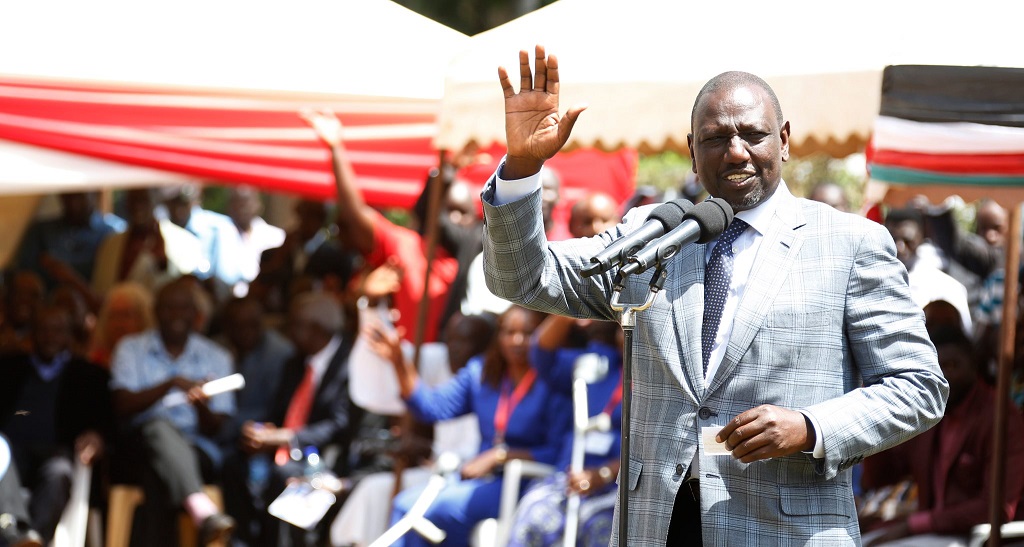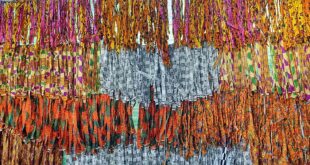As Kenya’s 9 August 2022 presidential election draws near, two candidates clearly lead the field – Voters will ultimately be asked to choose between Raila Odinga and William Ruto. In this opinion piece*, Duggan Flanakin looks at the two contenders
—
To great surprise, no doubt the most significant event of the 2022 campaign was the decision by former President Uhuru Kenyatta to back the son of his father’s ally, Raila Odinga, after years of the two being at political loggerheads.
This is, in the eyes of many, a positive indication that navigating the socioeconomic aftershocks of COVID-19 will require Kenya steadfast leadership, in addition to what the people have called for – Accountability in governance and, given the country’s historic resource wealth, human capital and rich biodiversity, tackling bureaucratic corruption to jumpstart the realization of a brighter future ahead for the ‘cradle of humanity’.
This united front should, however, not be seen as so surprising. Kenyatta’s and Odinga’s fathers long ago worked together to win their nation’s independence, so history may have also played as big a role in Kenyatta’s decision to jettison support away from his Deputy President, Ruto.
Or it may be that Ruto’s reputation is so tarnished by the stories of his use of public office for personal gain, certainly reaffirming the definition of a ‘hustler’, as he tends to liken himself.

To wear the veil of a 2022-era young activist when in fact the 55-year old’s legacy harkens back to the systemic corruption which has deterred the trajectory of many African states, warrants investigation.
Ruto’s reported modus operandi has revolved around land grabbing controversies that have embroiled several Kenyan state corporations in seemingly endless litigation. Perhaps the most controversial was his mysterious acquisition of land for a Ruto-owned Westin hotel.
Kenyan newspaper The Standard reported that the state agency, KCAA, was duped by other compromised public officials into surrendering the property to Ruto. During litigation, KCAA demanded that the hotel be demolished. KCAA also claimed that Ruto had acquired the land, which had been designated for construction of headquarters and flight paths for the adjacent airport, through illegality, fraud, and corruption.
Ruto claimed he had been unaware the land deal was flawed.
Shortly afterward, a Ruto ally demanded all cases in Kenya involving stolen property be thrown out if the suspects (as Ruto had done) were willing to pay compensation for any involvement in such schemes. The KCB Bank, too, supported Ruto in the court battle, fearing the loss of security against the 1.2 billion Kenyan shillings the bank had advanced Ruto to build the hotel.
Of course, the long-term profits from operating an airport hotel would be well worth the pittance in restitution for the illegal deal, and the intended use of the property could not be achieved.
Moreover, the Westin affair was hardly Ruto’s first rodeo.
Back in 2004, the future deputy president was charged with but later acquitted of defrauding the Kenya Pipeline Company of huge amounts of money through dubious land deals. Ruto has also faced accusations of grabbing land from a primary school and land meant for a sewage treatment plant in Nairobi.
In June 2013, Ruto was ordered to pay 5 million Kenyan shillings to a victim of the 2007-08 violence for illegally seizing his land and was evicted from the 100-acre property. In 2019, Ruto was accused of irregularities in a questionable acquisition of a 900-acre property that had belonged to another Kenyan official.
Yet Ruto fancies himself as a champion of the downtrodden (though he is now quite wealthy), while Odinga is, no question in contrast, viewed by many as a father figure; one who has fought to lead Kenya toward a transition to a new generation of political leadership; one perhaps more eager to see the nation prosper than to prosper themselves.
Moreover, while both Kenya’s Chief Justice and the Deputy Chief Justice are women, his potential Deputy President, Martha Kurua, would be the highest elected female public official in Kenya’s short history as a free nation.
As Africa and the world recently celebrates the birthday of Nelson Mandela with the theme of “do what you can with what you have and where you are,” a united front, and yes, even a fatherly figure, seasoned to navigate a dissipating world order and the potential for African autonomous growth within the global marketplace, might serve as a better transitional ticket than those claiming to speak for a new generation; a ‘Hustler Nation’, yet are themselves emblemizing the kind of corruption that has held Kenya back.
Originally appeared in International Policy Digest
 THE AFRICAN COURIER. Reporting Africa and its Diaspora! The African Courier is an international magazine published in Germany to report on Africa and the Diaspora African experience. The first issue of the bimonthly magazine appeared on the newsstands on 15 February 1998. The African Courier is a communication forum for European-African political, economic and cultural exchanges, and a voice for Africa in Europe.
THE AFRICAN COURIER. Reporting Africa and its Diaspora! The African Courier is an international magazine published in Germany to report on Africa and the Diaspora African experience. The first issue of the bimonthly magazine appeared on the newsstands on 15 February 1998. The African Courier is a communication forum for European-African political, economic and cultural exchanges, and a voice for Africa in Europe.





























